
Speculation that Theresa May will be moving out of Downing Street sooner than expected has reached fever pitch after another turbulent week in Westminster.
The Prime Minister told colleagues at the end of last year that she would step down before the next scheduled general election in 2022 but the pace of politics means she could be gone before then.
READ MORE: Theresa May's premiership teetering on the brink as she confronts Cabinet plotters
Here’s a look at key names currently being floated to take the helm if Mrs May steps down.
Michael Gove
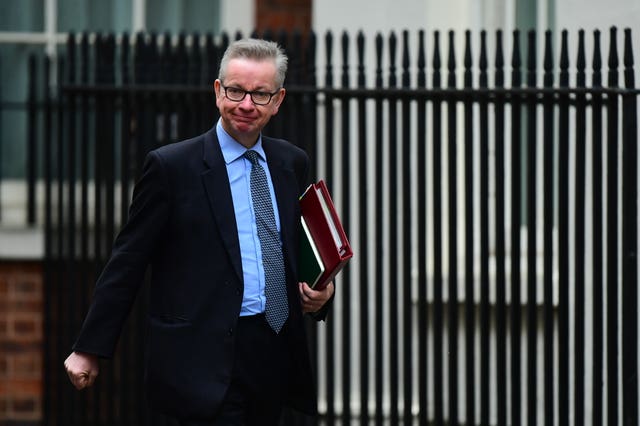 The Environment Secretary said it was “not the time to change the captain of the ship’ (Victoria Jones/PA)
The Environment Secretary said it was “not the time to change the captain of the ship’ (Victoria Jones/PA)
The Environment Secretary had a bruising experience in the last Tory leadership race but he is now seen as the favourite at 3-1 – according to Ladbrokes – to replace Mrs May, largely due to his Brexiteer credentials.
In June 2016, Mr Gove, who was campaign manager for Boris Johnson’s drive to succeed David Cameron, withdrew his support on the morning Mr Johnson was due to declare and threw his own hat in the ring instead.
He came third in the first round of voting, trailing behind ultimate winner Theresa May and Andrea Leadsom.
Mr Gove, 51, was born in Edinburgh, studied English at Oxford and was a journalist before becoming an MP. He is married to Daily Mail columnist Sarah Vine.
Despite speculation he could take the job, he told reporters on Sunday it was “not the time to change the captain of the ship”.
David Lidington
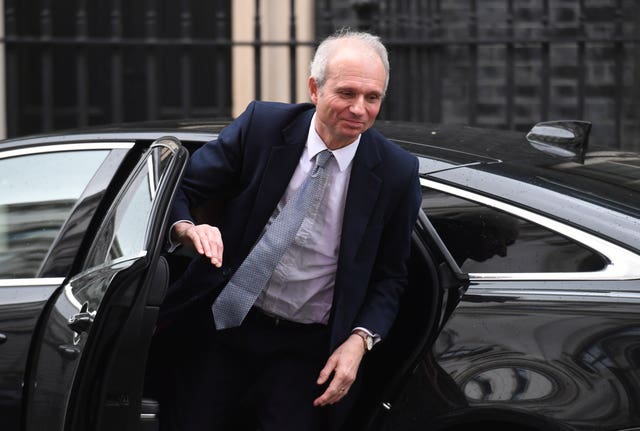 David Lidington said ‘I don’t think that I’ve any wish to take over from the PM’ (Stefan Rousseau/PA)
David Lidington said ‘I don’t think that I’ve any wish to take over from the PM’ (Stefan Rousseau/PA)
Mrs May’s de facto deputy is seen by some as the natural caretaker prime minister but he has been clear he does not want the job.
“One thing that working closely with the Prime Minister does is cure you completely of any lingering shred of ambition to want to do that task,” he said on Sunday.
Ladbrokes are offering odds of 4-1 for him to become Number 10’s next occupant.
The 62-year-old has been the MP for Aylesbury since 1992 and was Minister of State for Europe from 2010 to 2016. He is married with four children.
Boris Johnson
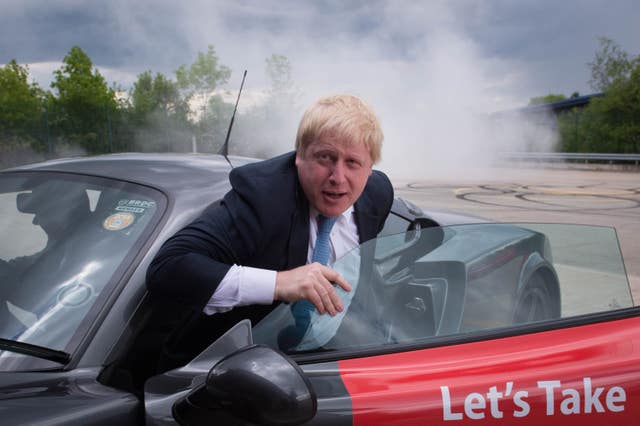 Boris Johnson was a key player in the 2017 Leave campaign (Stefan Rousseau/PA)
Boris Johnson was a key player in the 2017 Leave campaign (Stefan Rousseau/PA)
Prominent Brexiteer and former foreign secretary Mr Johnson has been a leading voice of opposition to Mrs May’s Brexit plan.
The colourful Old Etonian was one of the key players in the 2017 Leave campaign and resigned from the Cabinet following the Chequers summit in July.
He was heavily tipped as a successor to David Cameron but ruled himself out of the 2016 leadership contest after Michael Gove made a last-minute bid for the top job.
Odds of him taking the helm have slipped in recent months to 8-1, according to Ladbrokes, but he is likely to have the backing of many pro-Leave members of the party.
Jeremy Hunt
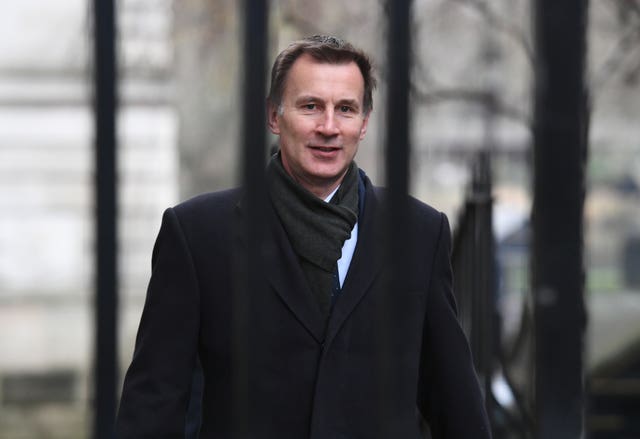 Jeremy Hunt chose not to run in the 2016 leadership contest (Stefan Rousseau/PA)
Jeremy Hunt chose not to run in the 2016 leadership contest (Stefan Rousseau/PA)
Foreign Secretary Jeremy Hunt (odds of 8-1 with Ladbrokes) was a prominent Remainer in the 2016 referendum.
As Health Secretary, Mr Hunt fought a long battle with doctors over a new contract.
The 52-year-old, who was first elected as MP for South West Surrey in 2005, was appointed Foreign Secretary in July following the resignation of Boris Johnson.
He chose not to run in the 2016 leadership contest and instead gave his full support to Mrs May, saying it was “not the right time” to put his hat in the ring.
Mr Hunt made a public shift towards Euroscepticism after the referendum, which could win him allies in the Leave camp if he ran for the top job.
Dominic Raab
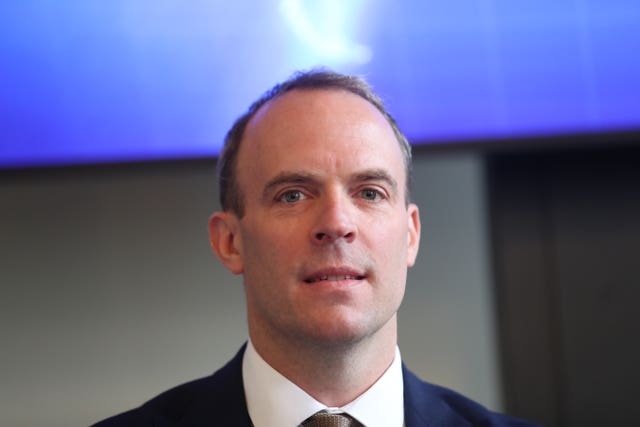 Dominic Raab is thought to have ambitions of taking on the top job (Steve Parsons/PA)
Dominic Raab is thought to have ambitions of taking on the top job (Steve Parsons/PA)
With odds at 12-1, Mr Raab is an outlier to take over from the Prime Minister but is thought to harbour ambitions for the role.
Mr Raab, a prominent Brexiteer in the referendum campaign, was appointed as Brexit Secretary in July but resigned from the role in November, saying he could not support Mrs May’s eventual deal.
In his resignation letter on November 15, he wrote: “Ultimately, you deserve a Brexit Secretary who can make the case for the deal you are pursuing with conviction. I am only sorry, in good conscience, that I cannot.”
Mr Raab, 44, has been the MP for Esher and Walton since he was elected in 2010.



Why are you making commenting on The Herald only available to subscribers?
It should have been a safe space for informed debate, somewhere for readers to discuss issues around the biggest stories of the day, but all too often the below the line comments on most websites have become bogged down by off-topic discussions and abuse.
heraldscotland.com is tackling this problem by allowing only subscribers to comment.
We are doing this to improve the experience for our loyal readers and we believe it will reduce the ability of trolls and troublemakers, who occasionally find their way onto our site, to abuse our journalists and readers. We also hope it will help the comments section fulfil its promise as a part of Scotland's conversation with itself.
We are lucky at The Herald. We are read by an informed, educated readership who can add their knowledge and insights to our stories.
That is invaluable.
We are making the subscriber-only change to support our valued readers, who tell us they don't want the site cluttered up with irrelevant comments, untruths and abuse.
In the past, the journalist’s job was to collect and distribute information to the audience. Technology means that readers can shape a discussion. We look forward to hearing from you on heraldscotland.com
Comments & Moderation
Readers’ comments: You are personally liable for the content of any comments you upload to this website, so please act responsibly. We do not pre-moderate or monitor readers’ comments appearing on our websites, but we do post-moderate in response to complaints we receive or otherwise when a potential problem comes to our attention. You can make a complaint by using the ‘report this post’ link . We may then apply our discretion under the user terms to amend or delete comments.
Post moderation is undertaken full-time 9am-6pm on weekdays, and on a part-time basis outwith those hours.
Read the rules hereLast Updated:
Report this comment Cancel